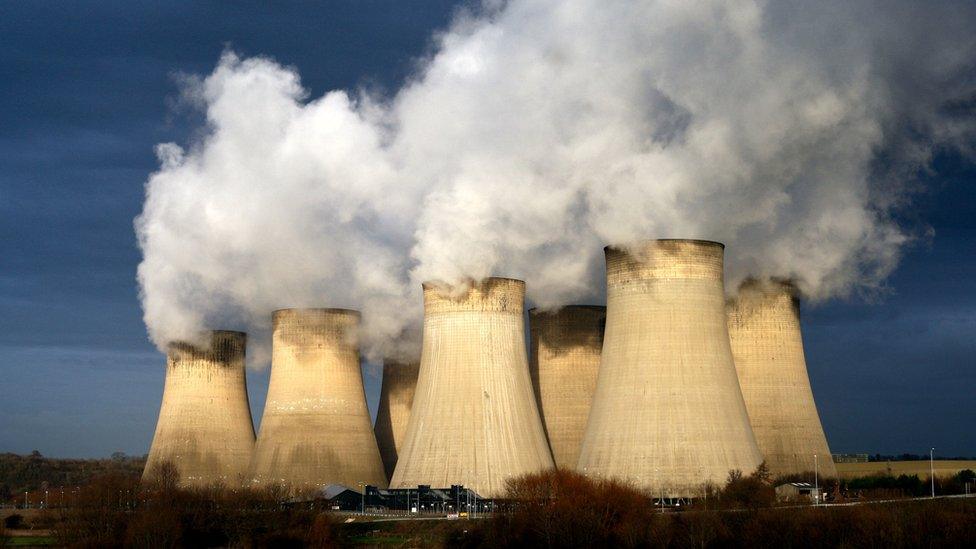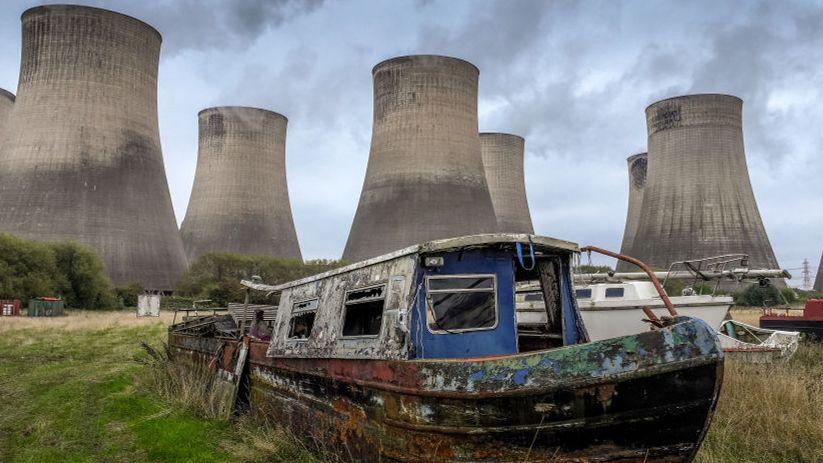UK's last coal-fired power station set to close
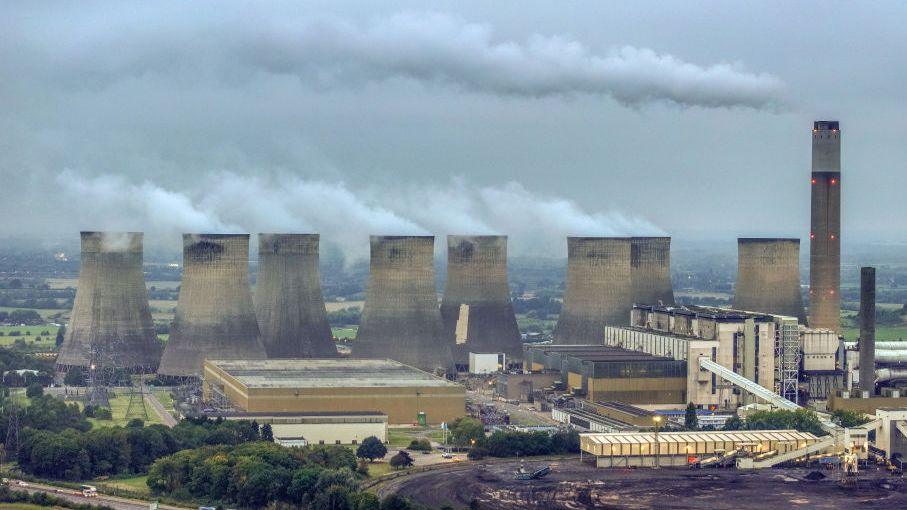
Ratcliffe-on-Soar power station in Nottinghamshire has been producing energy since 1967
- Published
The closure of the UK's last coal-fired power station has been described by officials as a "tremendously important milestone" in energy production.
Ratcliffe-on-Soar power station in Nottinghamshire is due to shut early next week, with demolition of the site to follow after decommissioning, which is set to take two years.
The site - a landmark in the East Midlands - has been producing energy since 1967, enough to make more than one billion cups of tea per day.
Mike Lewis, CEO of the site's owner Uniper, told the BBC the closure was a key step in the "global route to decarbonisation".
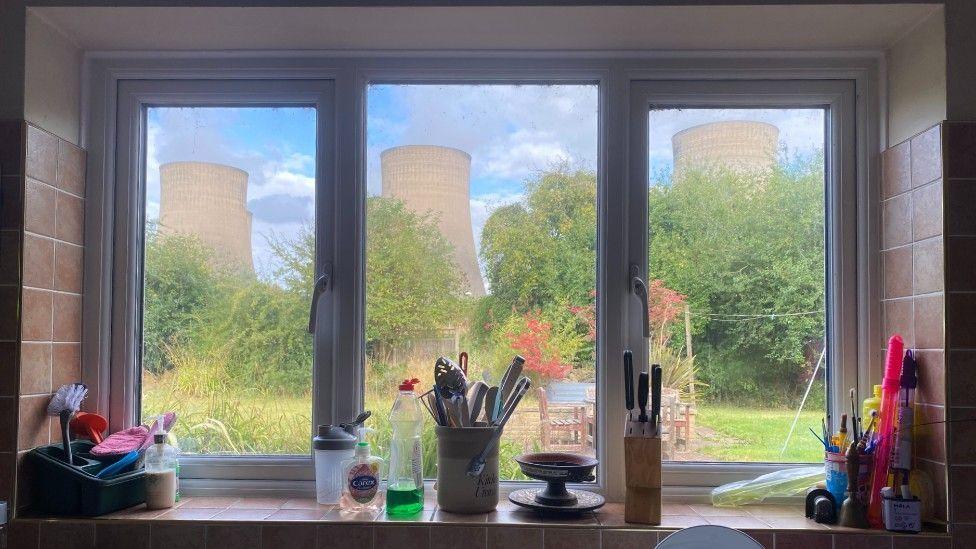
The power station has loomed large in the lives of the residents of the region
The site - situated off the A453 near the M1 motorway, and adjacent to East Midlands Parkway railway station - has been seen as a landmark for residents in the region for decades.
Neighbours close to the site, which comprises eight cooling towers, previously told the BBC the power station had played an important role in their lives.
Construction of the site began in 1963, with the first unit in place four years later, providing power for 57 years.
Ratcliffe has had approximately 141,768 coal deliveries by rail since 1967, with the last coal shipment taking place on 28 June.
The power station's final order of coal arrival by rail in June
Mr Lewis, who confirmed plans for a clean energy technology park at the site, said the closure was a "tremendously important milestone in the global route to decarbonisation".
When asked if a future with clean energy and no blackouts is possible, he said "absolutely", adding that solutions are being worked on now.
Mr Lewis said: "What we want to do is decarbonise flexible generation, because you can't run an energy system on renewables alone.
"You need power when the sun doesn't shine and when the wind doesn't blow."
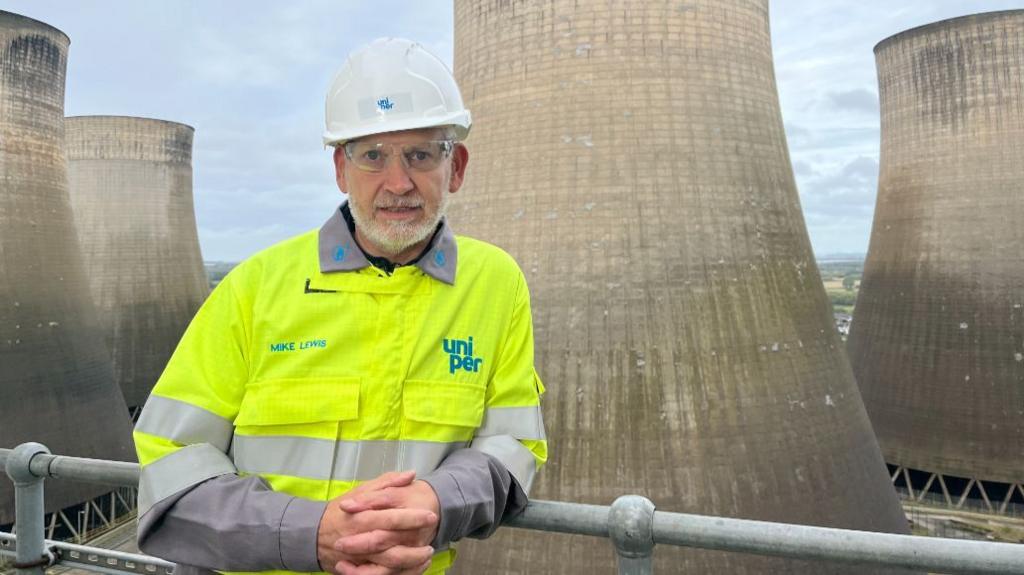
Mike Lewis said plans were in place for a clean energy technology park on the site
Uniper said it had about 350 colleagues and contractors working on site, but added during an outage, this could be as many as 600.
Plant manager Peter O'Grady, from Lincoln, said there would be "a little bit of a celebration" on Tuesday as operations at the site ended.
"It's a major thing – this is the end of coal-fire generation in the UK," he said.
"When I started in the industry, 80% of the UK's power was from coal, and by the end of next week it will be zero and the lights have stayed on."
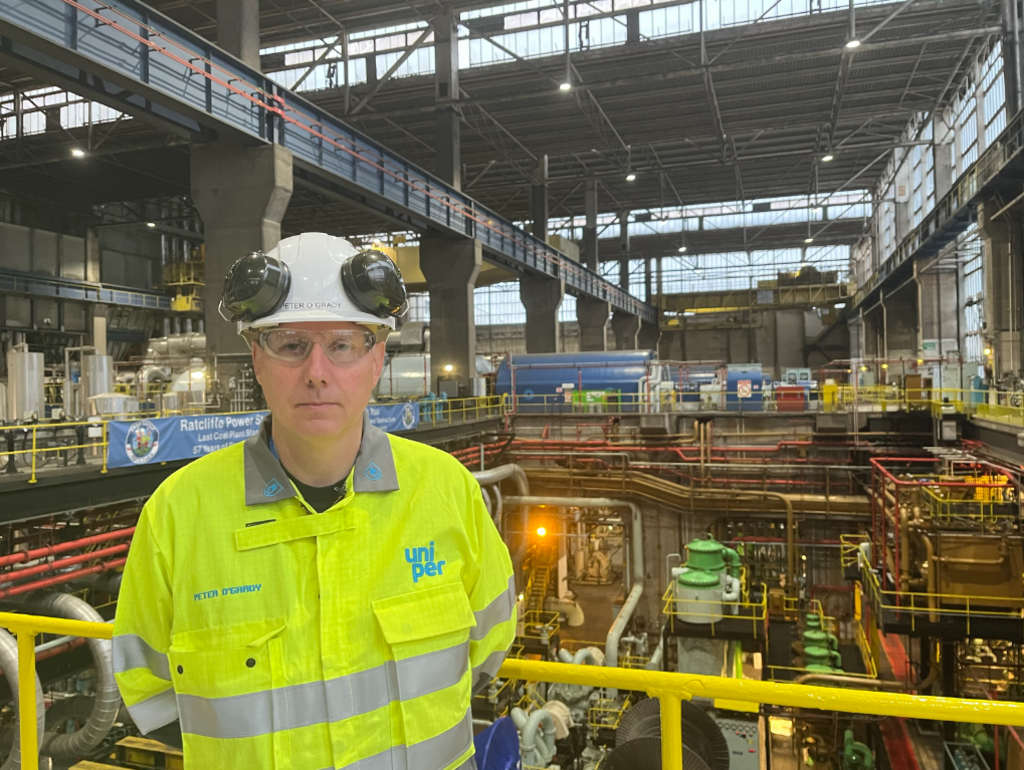
Plant manager Peter O'Grady joined the industry in 1988
Richard Montgomery, electrical engineer at the station, said "the emotions are building" as the closure nears, while environment team leader Chris Smith added the closure was "a shame".
"We've worked so hard to make it the cleanest, but obviously, given the age of the plant, it's probably about right for us to close and make room for more renewable energy," she said.
Mr O'Grady added: "In terms of decommissioning, we don't see that as ending, we see that as creating a new future."
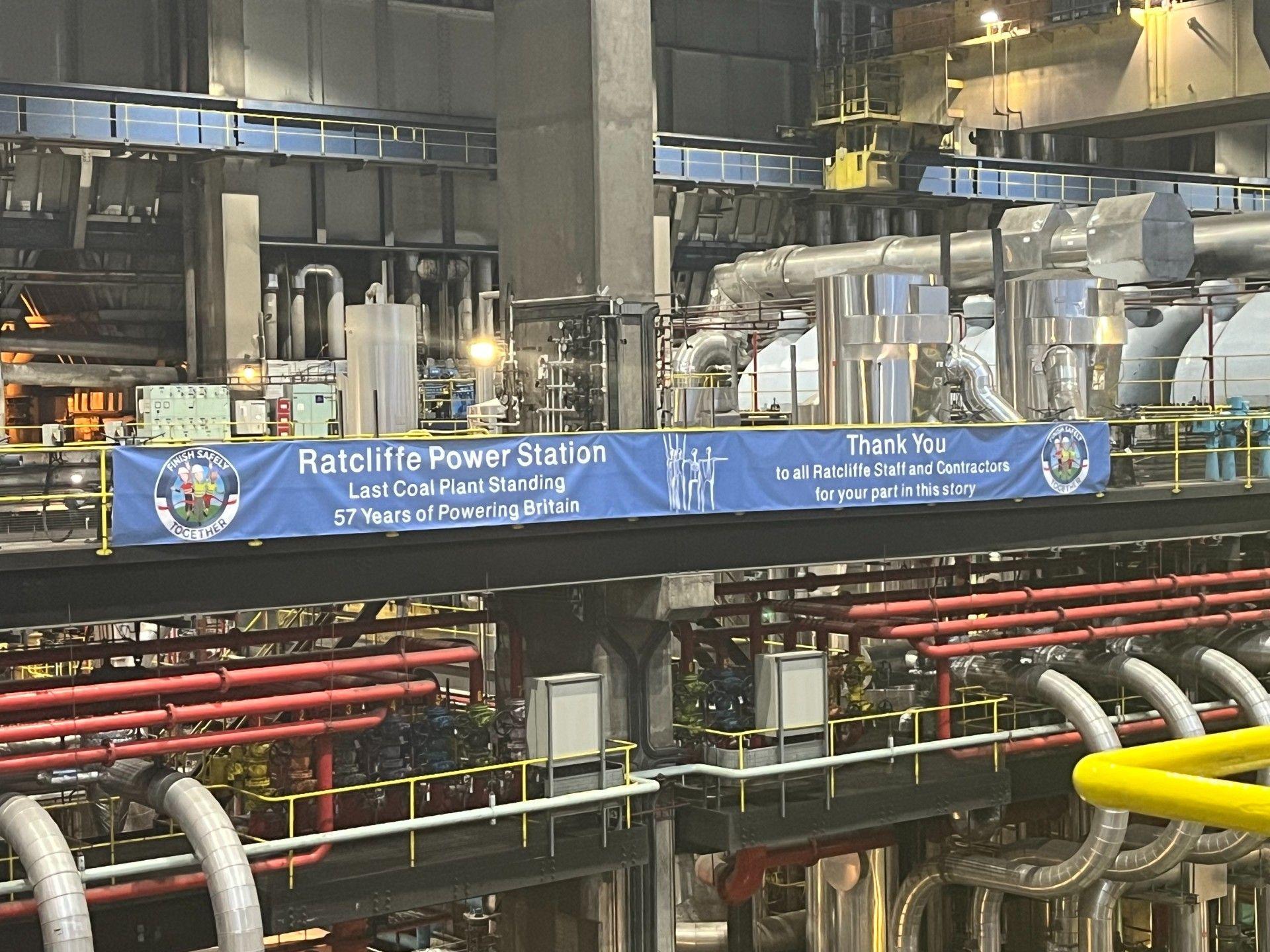
About 350 Uniper colleagues and contractors work at the site
Get in touch
Tell us which stories we should cover in Nottingham
Follow BBC Nottingham on Facebook, external, on X, external, or on Instagram, external. Send your story ideas to eastmidsnews@bbc.co.uk, external or via WhatsApp, external on 0808 100 2210.
Related topics
- Published16 September 2024
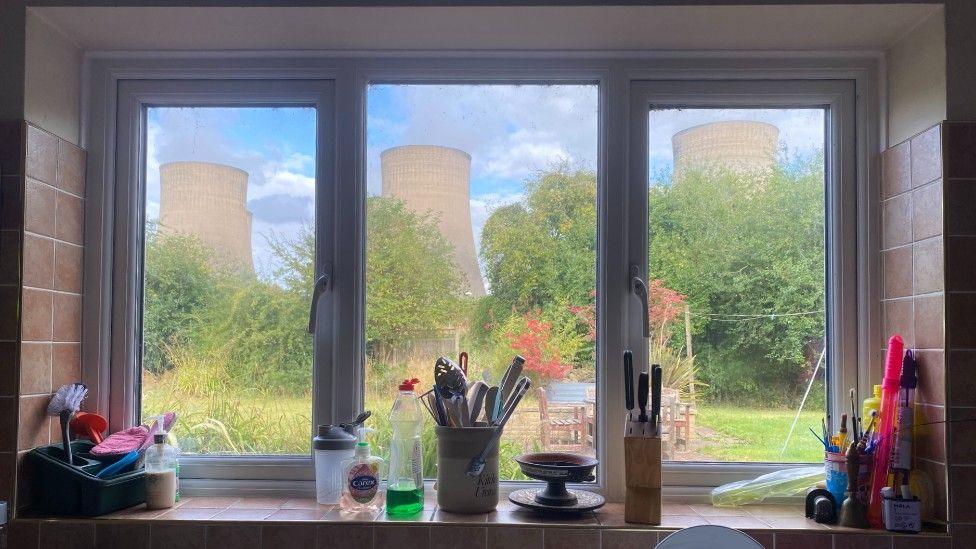
- Published1 July 2024
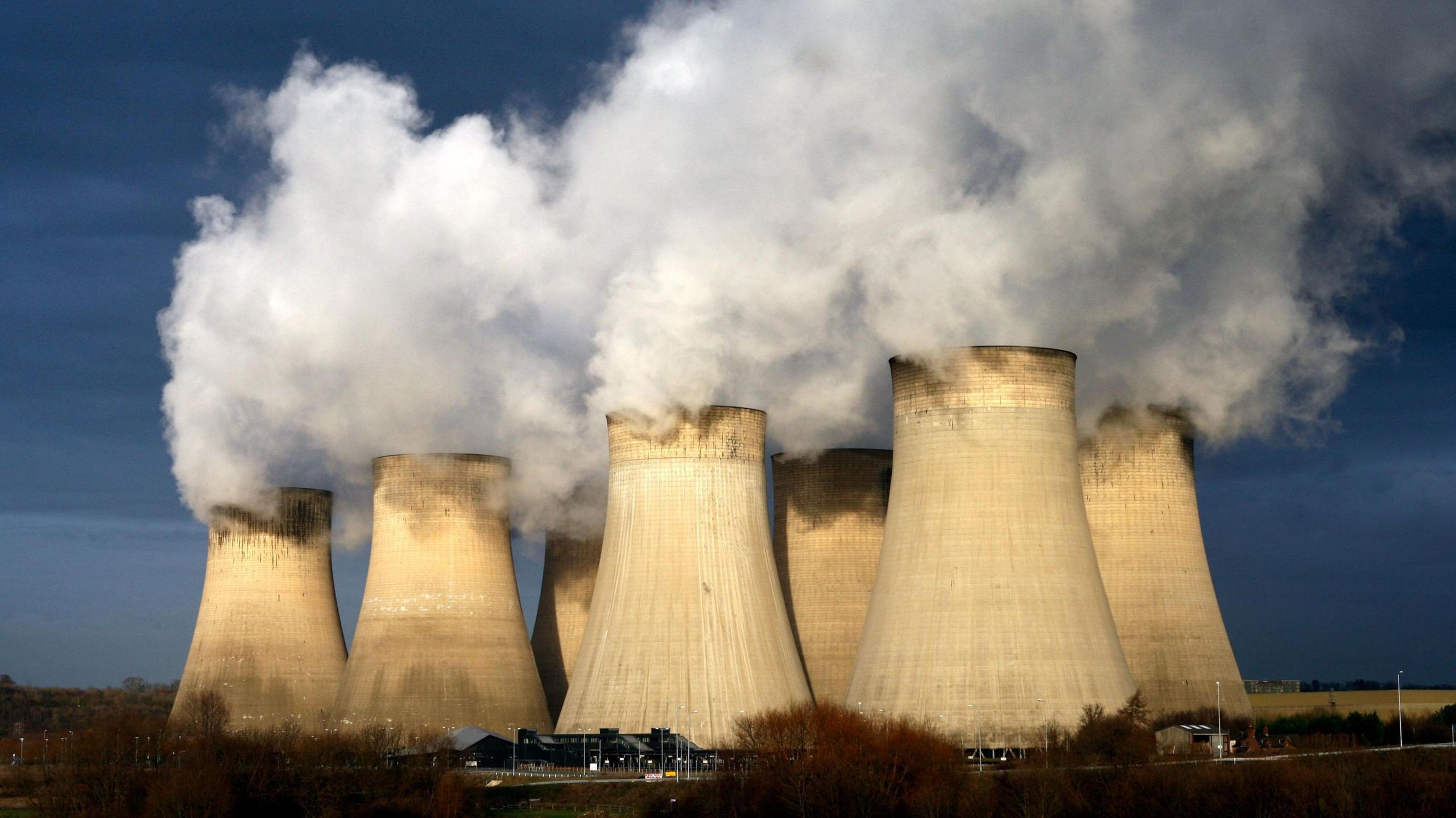
- Published30 June 2024
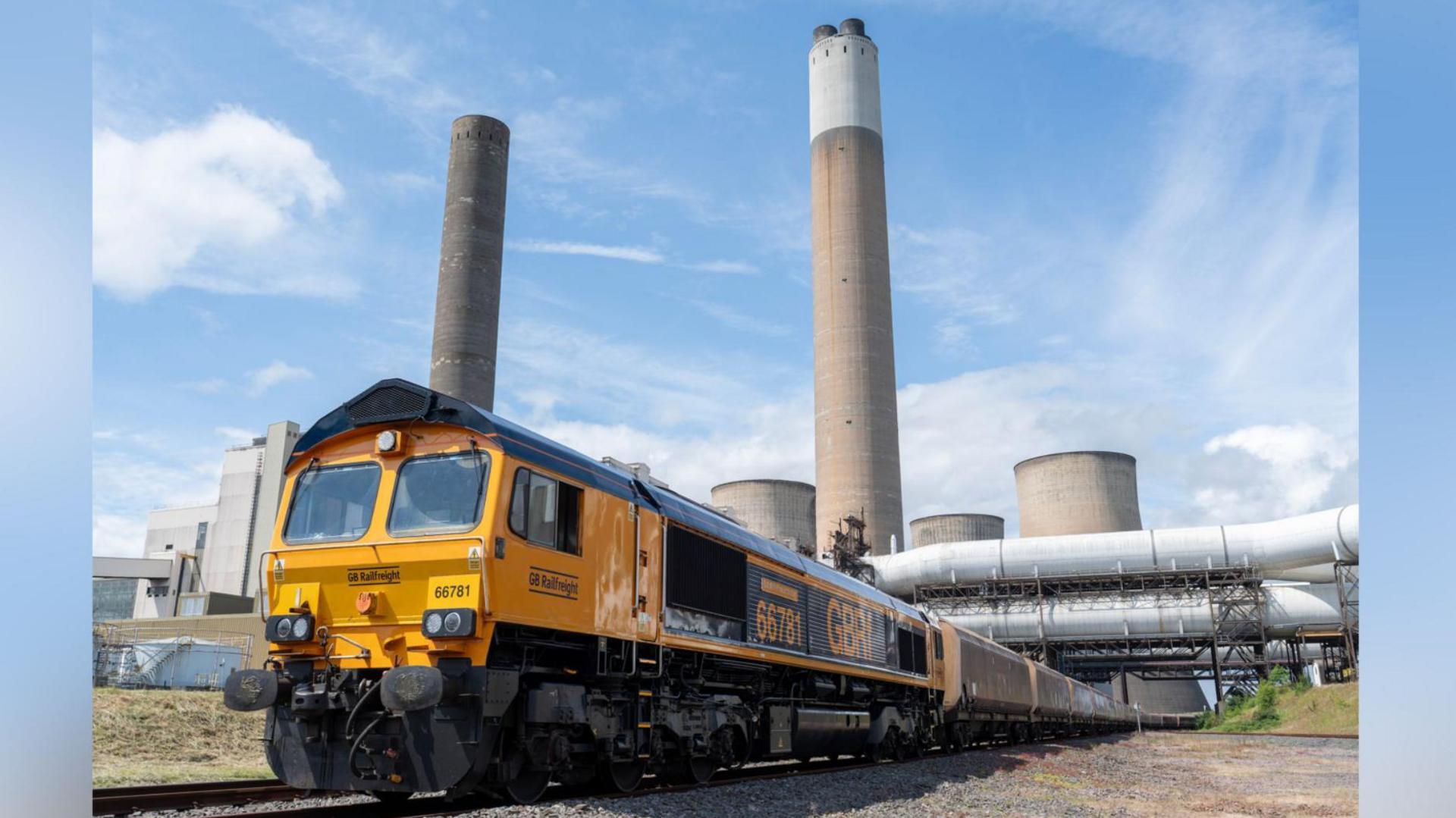
- Published29 April 2024
